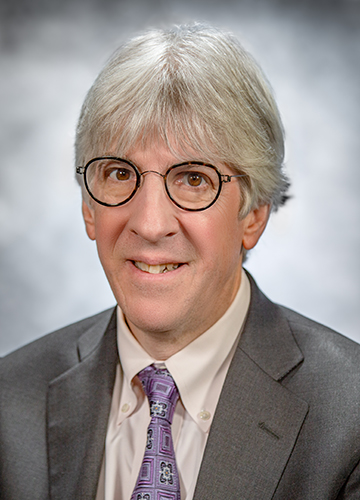Welcome from the Dean
Welcome to The University of Texas at Dallas School of Behavioral and Brain Sciences!

We are a multi-disciplinary faculty of teachers and researchers with a common purpose of creating and communicating knowledge about the human brain and behavior in health and disease. Our outstanding faculty investigate and educate in a wide range of topics in neuroscience, psychology, and speech, language, and hearing.
Our mission in the School of Behavioral and Brain Sciences (BBS) is to study the biology and psychology of thought and language, development and aging, social interaction, and perception in healthy adults and children both in illness and atypical development. Through our work, we aim to enhance the health, education, and quality of life of adults and children, their families and their communities. We accomplish this with fundamental investigation of brain and behavior, and applied research in remediation and compensation, including the use of advanced technology.
The School of Behavioral and Brain Sciences has a long and cherished history. Our roots date to 1957, twelve years before the founding of The University of Texas at Dallas, when the trust of Mrs. Lena Callier, a native Texan with a profound interest in hearing, was used to establish the Callier Hearing and Speech Center, ultimately incorporated as a non-profit, community-based institution in 1963. Another 12 years later, in 1975, the Callier Center joined The University of Texas at Dallas, expanding the focus of what was then the School of Human Development to include speech, language and hearing. In 2002, recognizing the breadth of faculty research and education, a name change led to the creation of the School of Behavioral and Brain Sciences.
Our three disciplinary areas in BBS — neuroscience, psychology, and speech, language, and hearing — offer five undergraduate degree programs (child learning and development, cognitive science, psychology, neuroscience, and speech, language, and hearing sciences), four master of science programs (applied cognition and neuroscience, human development and early childhood disorders, psychology, and speech-language pathology), three doctor of philosophy programs (cognition and neuroscience, psychology, and speech, language, and hearing sciences), and one clinical doctoral program (audiology). A strong interdisciplinary emphasis brings faculty together across the three academic areas.
Dr. Small is a builder. He has a great talent for assembling ideas and teams that cross traditional academic boundaries. Dr. Small understands our diverse faculty and supports our aspiration to build on our strengths and establish our national reputation for cutting-edge research.
Dr. Michael Kilgard
Margaret Fonde Jonsson Professor and chief science officer and executive director of the Texas Biomedical Device Center at UT Dallas
Dr. Small brings a unique combination of skills to our University, as a researcher and a leader. His passion for accelerating the pace of innovation meshes with our ethos as a national research university.
Dr. Inga Musselman
UT Dallas provost, vice president for academic affairs and the Cecil H. Green Distinguished Chair of Academic Leadership
BBS has more than 2,300 undergraduate students and nearly 600 graduate students, including two of the top 10 undergraduate majors at UTD (neuroscience, psychology). Our faculty include over 60 research-track faculty and more than 20 full-time educational faculty. Our faculty has more than $10 million in annual research expenditures, most of which comes from federal governmental sources (e.g., National Institutes of Health, National Science Foundation).
BBS faculty lead six different UTD research centers, and each is the home to many of our research-track faculty, who perform collaborative research in focused areas, impacting the daily lives of many people. The Callier Center for Communication Disorders, as the center is now called, is the oldest and largest of these centers, with a tripartite mission of clinical care, teaching, and research in speech, language, and hearing sciences and disorders. The Center for Advanced Pain Studies is our newest center, which aims to find non-opiate molecular and cellular targets to remediate pain. The Center for BrainHealth™ aims to improve the neurological functioning of everyone to prevent cognitive decline and dementia. The Center for Children and Families focuses on helping all families provide valuable education and nurturing for their children to aid in school readiness and success. Our Center for Vital Longevity is one of the premier research centers in the country for investigation of normal brain aging, changes in learning and memory, and prevention of decline. The Texas Biomedical Device Center uses advanced bioengineering to develop new techniques for improving neurological functioning in individuals with a variety of neurological disorders, from stroke to tinnitus.
Driven by research prowess, academic rigor, high quality pedagogy and a renowned faculty, the School of Behavioral and Brain Sciences continues to expand its profile with a thriving network of alumni in research, teaching and professional positions across the country.
Please join our family! We welcome students, faculty, research participants and contributors. We invite everyone in the Dallas-Fort Worth metroplex to play a role. We also invite potential students and faculty, candidates for our research studies, and interested philanthropists from around the USA and world to give us your attention!
Welcome to our School, UTD BBS!
Steven L. Small, PhD, MD
Dean, School of Behavioral and Brain Sciences
Aage and Margareta Møller Distinguished Professor






